Speaker Bios
Keynote Speakers
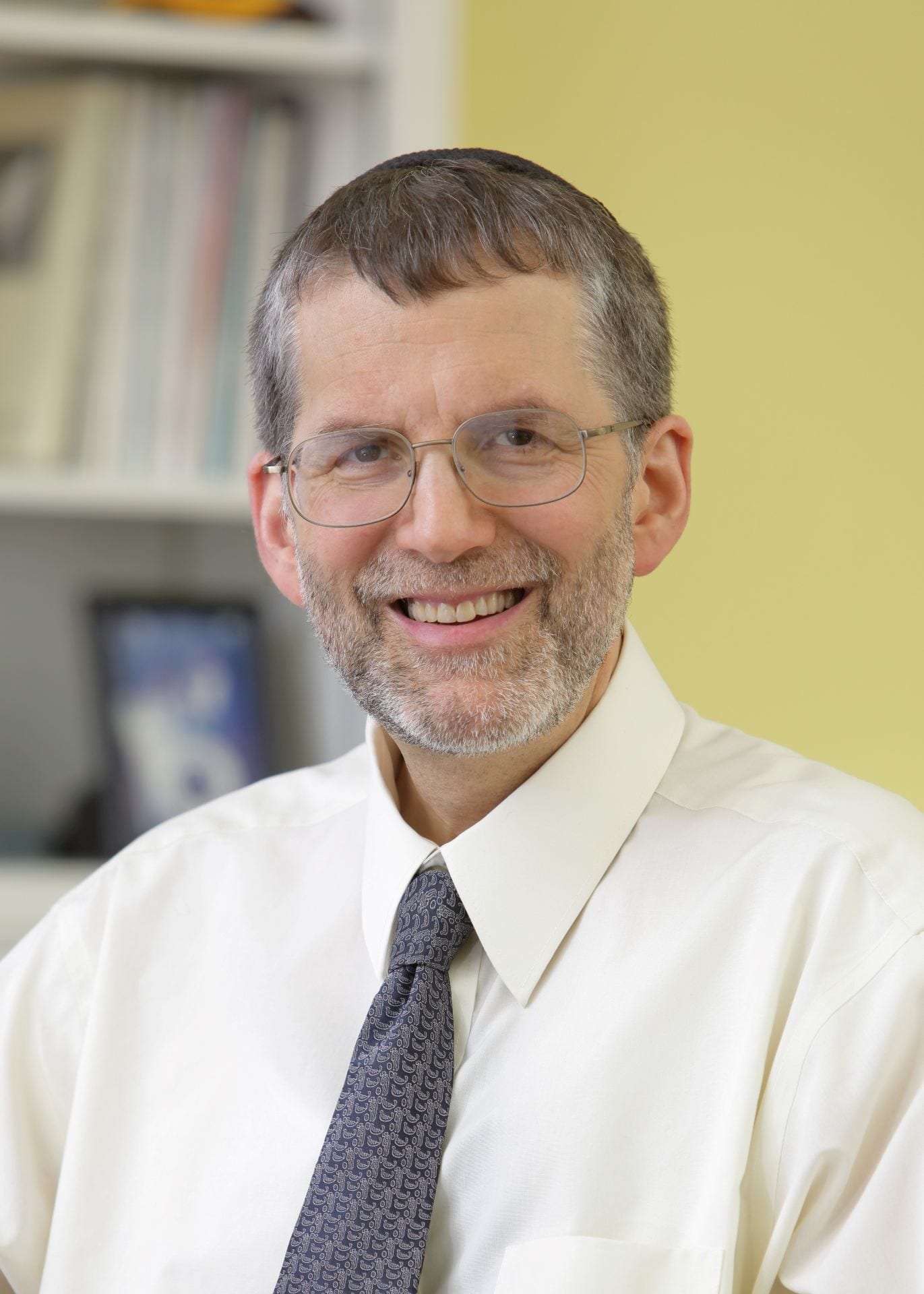 Michael Lauer
Michael Lauer
Deputy Director for Extramural Research
National Institutes of Health (NIH)
Michael Lauer, M.D., is the Deputy Director for Extramural Research at the National Institutes of Health (NIH), where he serves as the principal scientific leader and advisor to the Director of the NIH on all matters relating to the substance, quality, and effectiveness of the NIH extramural research program and administration. He received education and training at Rensselaer Polytechnic Institute, Albany Medical College, Harvard Medical School, Harvard School of Public Health, and the NHLBI’s Framingham Heart Study. He spent 14 years at Cleveland Clinic as Professor of Medicine, Epidemiology, and Biostatistics. During his tenure at the Clinic, he led a federally funded internationally renowned clinical epidemiology program that applied big data from large-scale electronic health platforms to questions regarding the diagnosis and management of cardiovascular disease. From 2007 to 2015 he served as a Division Director at the National Heart, Lung, and Blood Institute (NHLBI), where promoted efforts to leverage big data infrastructure to enable high-efficiency population and clinical research and efforts to adopt a research funding culture that reflected data-driven policy. He has received numerous awards including the NIH Equal Employment Opportunity Award of the Year and the Arthur S. Flemming Award for Exceptional Federal Service in recognition of his efforts to grow a culture of learning and accountability.
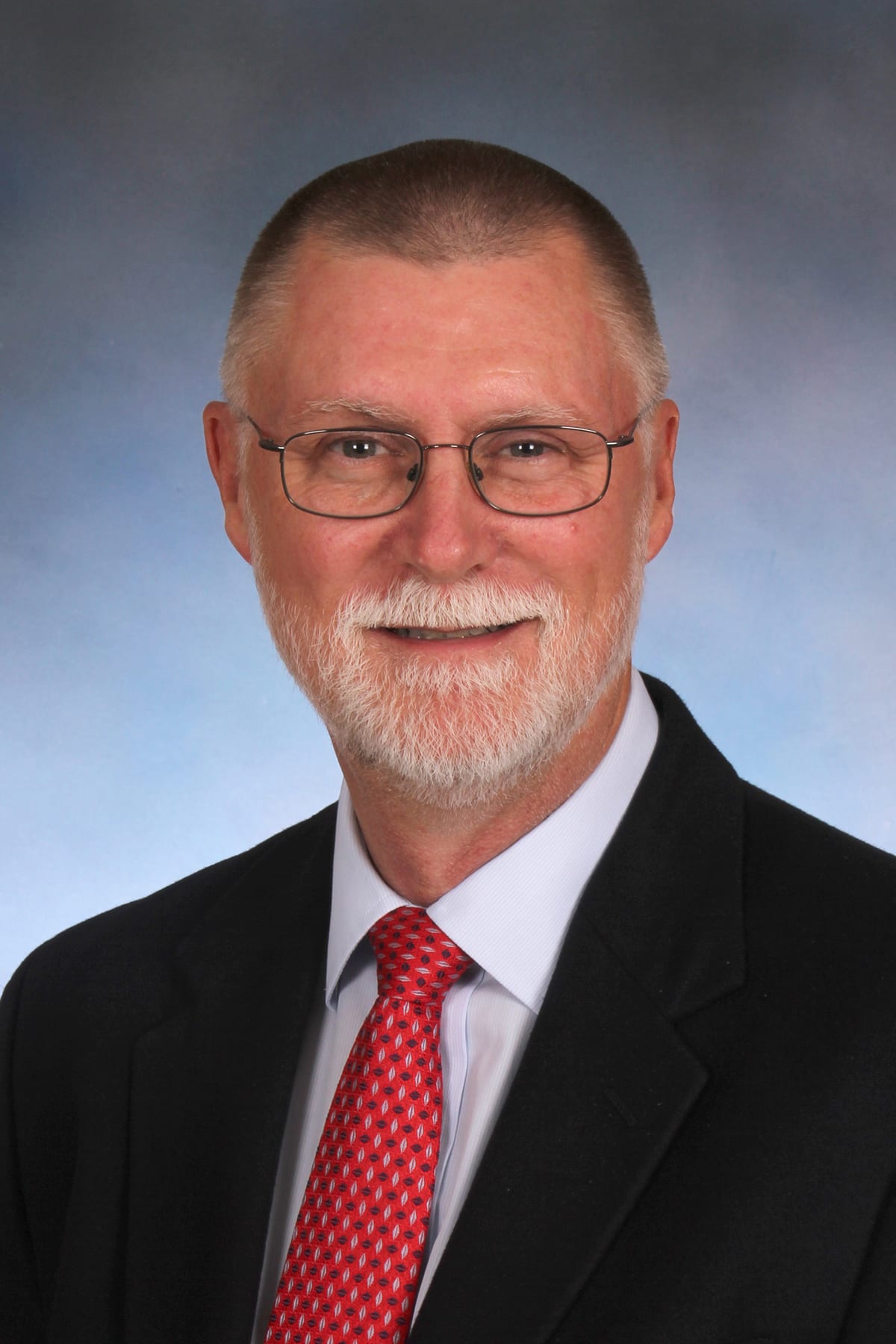 Bruce A. McPheron
Bruce A. McPheron
Executive Vice President and Provost
The Ohio State University
As executive vice president and provost, Dr. Bruce A. McPheron is The Ohio State University’s chief academic officer. In this role, he is responsible for the administration and strategic planning, development and review processes for the university’s academic mission.
Dr. McPheron’s leadership more specifically includes oversight of 15 colleges, five campuses and more than 7,000 tenure-, clinical-, research-track and associated faculty. In addition, he oversees academic programs for 66,046 undergraduate, graduate and professional students, more than 200 majors and almost 13,000 courses, along with the support of a library system with 5.8 million volumes in its collection and electronic access to 48 million books and journals.
A professor of entomology, he has taught undergraduate and graduate courses, including courses in international agriculture. His research has focused on the use of genetic tools to examine population structure in pest insects of global quarantine significance and resulted in extensive field-work on multiple continents. His work is widely published in peer-reviewed publications and, among his many national recognitions and honors, he is an elected Fellow of the American Association for the Advancement of Science. As an academic leader he has been instrumental in connecting faculty and other researchers in innovative collaborations across disciplines.
At Ohio State, he is the convener and chair of the Council of Deans and the Senior Management Council, two university councils that lead and work with both academic and academic-support units to align strategies with resources. His extensive national academic leadership service currently includes the Big Ten Academic Alliance Provosts Council and the Association of Public and Land Grant Universities (APLU) Council on Academic Affairs executive committee. In addition, his community engagement includes the Experience Columbus, the Columbus Council on World Affairs, and the Feeding America Boards of Directors.
Prior to joining Ohio State’s faculty in 2012 as the vice president for agricultural administration and dean of the College of Food, Agricultural, and Environmental Sciences, he previously served as dean of the College of Agricultural Sciences at The Pennsylvania State University.
Dr. McPheron earned his bachelor’s degree from The Ohio State University and his master’s degree and doctorate from the University of Illinois.
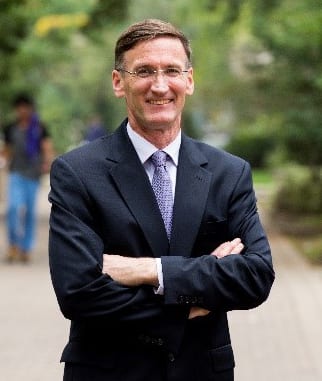 Jay Walsh
Jay Walsh
Vice President for Research
Northwestern University
As Northwestern University’s vice president for research since 2007, Jay Walsh oversees a research infrastructure and annual research budget exceeding $675 million. He also directs the development and implementation of University-wide research-related strategic plans through leadership support for programs such as the Energy Frontier Research Centers, the UI Labs consortium and national hub for digital manufacturing, and the Northwestern-Argonne Institute of Science and Engineering.
Under Walsh’s leadership, the Office for Research has made significant contributions to the development and support of Northwestern’s core research facilities and research institutes and centers, including the Institute for Policy Research, the Buffett Institute for Global Studies, the Chemistry of Life Processes Institute, the International Institute for Nanotechnology, and the Institute for Sustainability and Energy at Northwestern. Additionally, Walsh has championed global impact programs, such as the Mandela Washington Fellowship-Young African Leadership Initiative and the program on Equality Development and Global Studies.
Walsh joined Northwestern in 1988 as a professor of biomedical engineering at the McCormick School of Engineering and Applied Sciences, where he later served as associate dean for graduate studies and then senior associate dean. He earned his bachelor’s and master’s degrees in electrical engineering from the Massachusetts Institute of Technology (MIT) and a doctorate degree in medical engineering from a joint Harvard Medical School – MIT program. Walsh’s early research on laser-tissue interactions has framed understanding of laser ablation and the scientific foundation for today’s standard laser-based procedures in medicine and surgery. More recently, his research has focused on the diagnostic and therapeutic applications of light.
Walsh has contributed his insights and leadership beyond Northwestern, too. He serves on the Board of Directors at Current and at the Chicago Council on Science and Technology; the Board of Governors at Argonne National Laboratory; the Secretary of the Navy Advisory Panel; the Naval Research Advisory Committee; and the MIT Corporation Visiting Committee for Sponsored Research.
Speakers
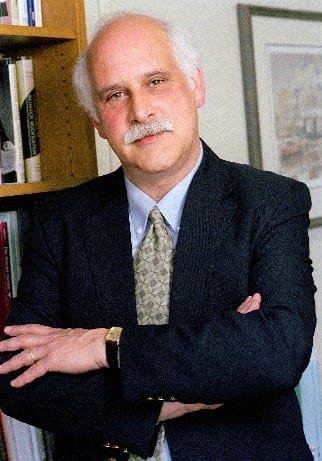 John Carfora
John Carfora
Subject Matter Expert
Office of Research Integrity
U.S. Department of Health and Human Services
Dr. Carfora, Ed.D., CCEP, RIO, retired as Associate Provost for Research Advancement and Compliance at Loyola Marymount University in May 2018, and during his tenure there co-organized and hosted the first Conference on Promoting the Responsible Conduct of Research for College and University Leaders (April 14-16, 2016). An authority on ethics, compliance, and research integrity, Dr. Carfora is often invited to speak at universities and conferences in the USA and abroad. Dr. Carfora holds graduate degrees from several institutions of higher learning, including The London School of Economics, Harvard University, and a doctorate from Teachers College, Columbia University. A recipient of several international awards, John regularly lectures in the USA, Canada, Europe, Africa, China, Russia, and in South and Central America. He is a recipient of the Distinguished Service Award from the National Council of University Research Administrators (NCURA), and was an IREX Fellow to Russia and a Fulbright Scholar to Ireland.
Dr. Carfora has been a tenured professor, research scholar, and an international consultant with clients such as American Airlines, Disney and U.S. News and World Report. He was founding Curator of the Schapiro Collection at the British Library of Political and Economic Sciences (London), and is a certified Research Integrity Officer (RIO), a clinical bioethicist, and Certified Compliance and Ethics Professional (CCEP). Dr. Carfora is a Lecturer at Johns Hopkins University.
Dr. Carfora is a member of “I-Group” — a National Academy of Sciences and Government-University-Industry Research Roundtable committee — which published the book “Examining Core Elements of International Research Collaboration” (National Academies Press, 2011). Dr. Carfora is a member of the Executive Advisory Board of the Higher Education Teaching and Learning Association, and Vice President of the Fulbright Association (Los Angeles). Dr. Carfora is a prior member of the Board of Directors for NCURA and the National Organization of Research Development Professionals (NORDP). Dr. Carfora previously served on the Board of Directors of the Alumni and Friends of The London School of Economics.
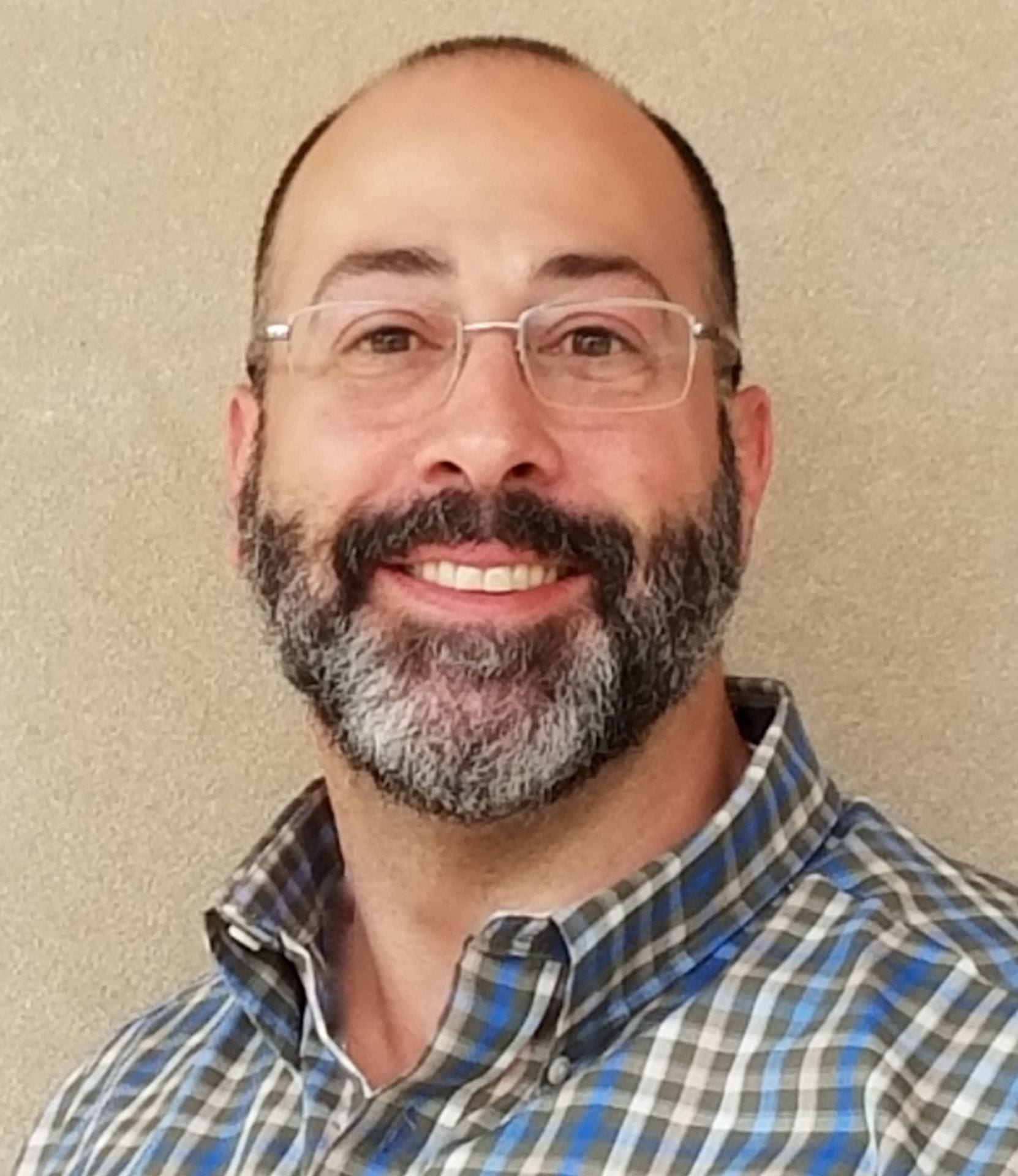 James Dubois
James Dubois
Professor of Medical Ethics and Professionalism, Professor of Psychology
Director of the Bioethics Research Center
Washington University School of Medicine
James Dubois, DSc, Ph.D., is the Steven J. Bander Professor of Medical Ethics and Professionalism, Professor of Psychology, and Director of the Bioethics Research Center at Washington University School of Medicine. DuBois completed his PhD in philosophy at the International Academy of Philosophy in Liechtenstein and his DSc in psychology at the University of Vienna in Austria, where he focused on cross-cultural moral psychology. He directs the Professionalism and Integrity in Research Program (PI Program), which offers personalized assessments, a group workshop, and post-workshop coaching calls to help researchers operate professionally in today’s complex environments. He is the founding Editor (with Ana Iltis) of Narrative Inquiry in Bioethics: A Journal of Qualitative Research, published by Johns Hopkins University Press. He has received more than $10 million in research and training grant funding from the National Institutes of Health, the US Office of Research Integrity, and foundations. His research interests include: understanding and preventing ethical lapses in healthcare and research, fostering best practices for informed consent, research ethics in mental health, and empirical research on bioethical issues.
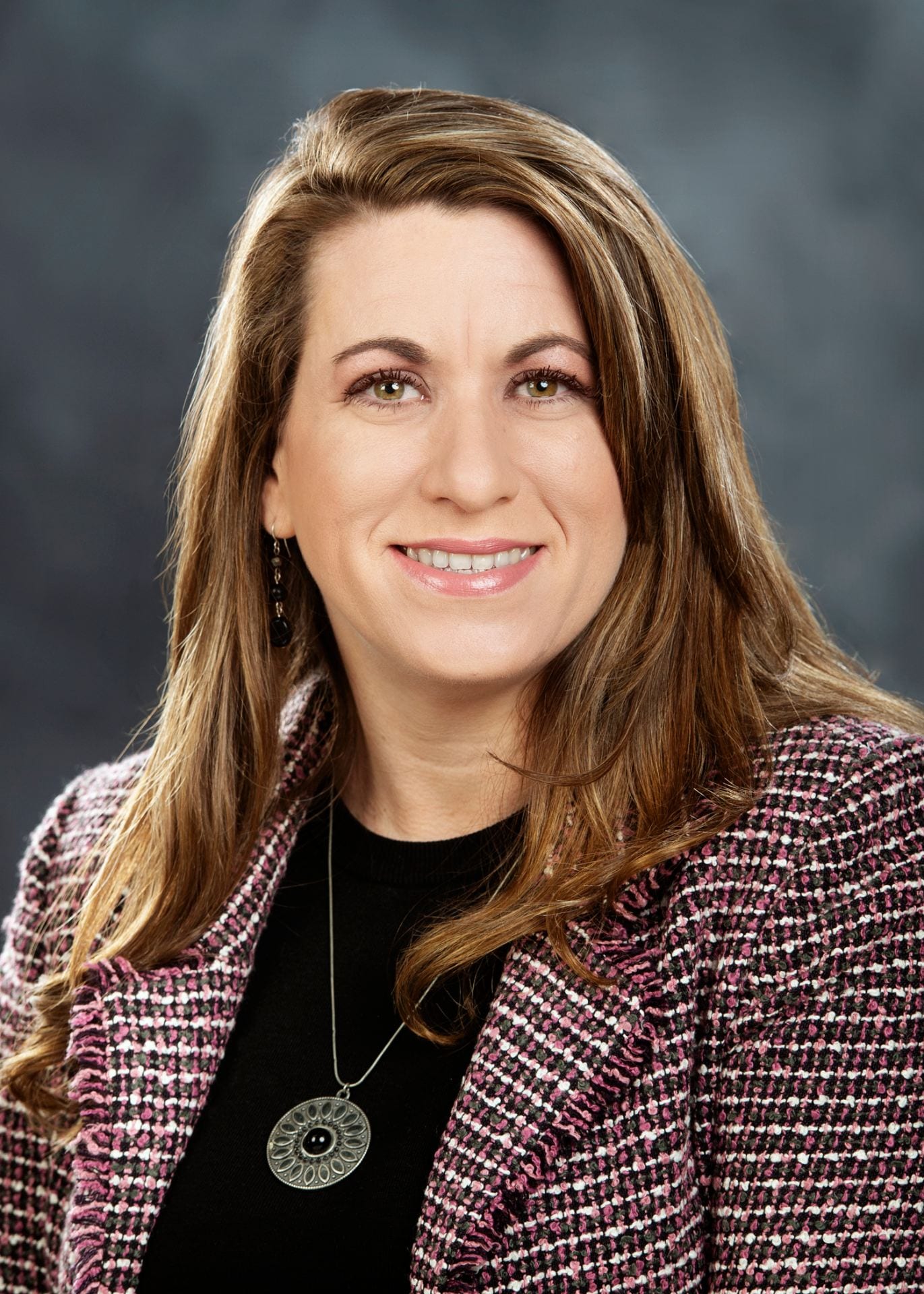
Katie Echols
Director for Research Analysis and Support
Mississippi State University
Katie Echols, Ph.D., is the director for research analysis and support at Mississippi State University. She began her career at Mississippi’s flagship research university in 2007 and since 2015 has served as MSU’s research integrity officer (RIO). Dr. Echols has worked to support the research activities of her institution and has been actively involved in the management of multiple statewide research programs funded by the National Science Foundation. As the RIO, she oversees the process for investigating and resolving allegations of research misconduct. She works with groups across campus to promote ethical research practices. Recently, MSU completed the administration of the SOURCE survey and is currently working to enhance the land-grant institution’s research integrity climate. Dr. Echols holds a bachelor of science in education and a MPPA and PhD in public policy and administration, from Mississippi State University.
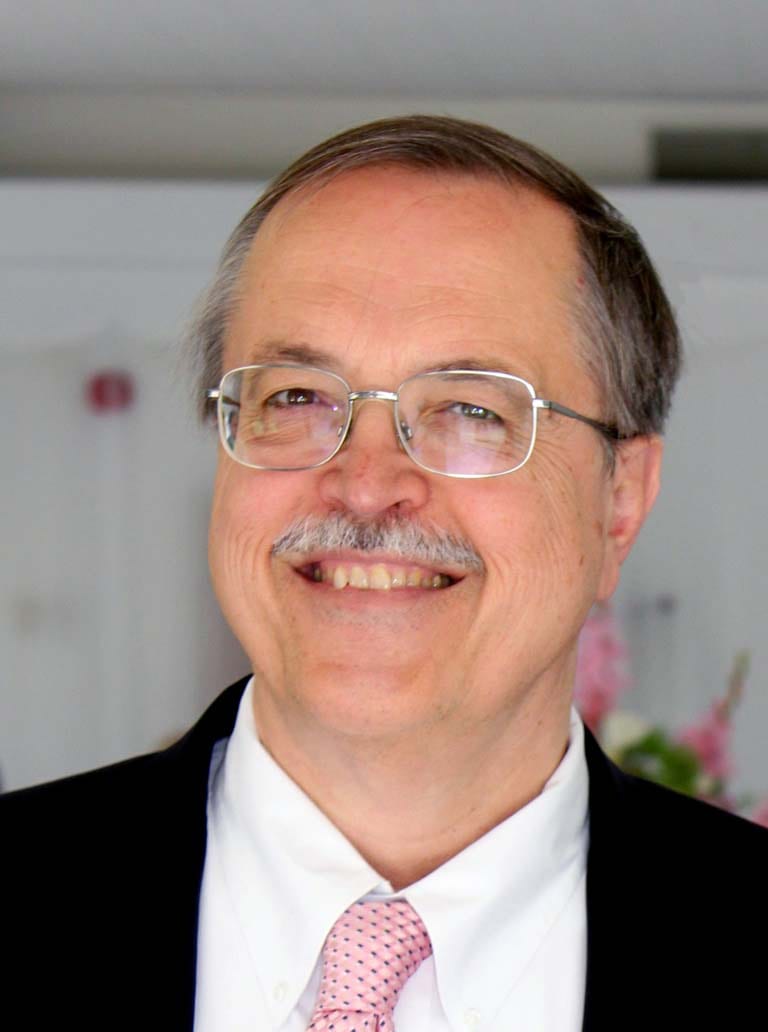
Jeffrey Engler
Vice president, Special Projects
Council of Graduate Schools
Jeffrey A. Engler, Ph.D., Vice President for Special Projects at the Council of Graduate Schools, serves as a co-organizer of this conference. He is part of the team supporting the NSF- and Mellon Foundation-funded Career Pathways project to understand the career transitions and skill development of doctoral alumni with the long-term goal of enhancing graduate training programs. He also oversees the implementation of the April 15 Resolution that standardizes the acceptance of financial aid offers by graduate program applicants. He also leads the grant writing workshops for the Southeastern Training Hub of the National Research Mentoring Network, based at the Morehouse School of Medicine.
In his previous position as Professor of Biochemistry and Molecular Genetics and as Associate Dean in the Graduate School at the University of Alabama at Birmingham, Dr. Engler taught the research ethics course for graduate students and postdoctoral fellows at UAB. He participated in several research projects to assess the climate for research integrity at UAB, funded by grants from ORI and by CGS. He also served as Research Integrity Office at UAB for 3.5 years. He managed the Professional Development programs offered by the Graduate School, preparing graduate students and postdoctoral fellows for diverse career paths. Dr. Engler led UAB’s participation in the Center for the Integration of Research, Teaching, and Learning (CIRTL), a national consortium of major research universities committed to improve undergraduate STEM education and served on the CIRTL Leadership Team.
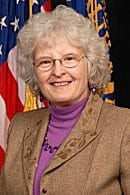
Wanda Jones
Interim Director, Office of Research Integrity
Senior Advisor to the Assistant Secretary for Health
Office of the Assistant Secretary for Health (OASH)
U.S. Department of Health and Human Services
Dr. Wanda Jones is the Interim Director, Office of Research Integrity, and Senior Advisor to the Assistant Secretary for Health in the Office of the Assistant Secretary for Health (OASH), U.S. Department of Health and Human Services.
She recently completed a 14-month detail in the Office of the Assistant Secretary for Preparedness and Response, where she led development of the HHS 2017 update to the Pandemic Influenza Plan, and the policy framework for the Department’s implementation of its authorities under the Defense Production Act of 1950.
Before accepting the detail in 2016, Dr. Jones was the HHS Principal Deputy Assistant Secretary for Health (PDASH), a position she held since November 2009. As the PDASH, Dr. Jones oversaw ORI operations and was the signing official on voluntary settlement agreements on research misconduct findings.
Dr. Jones joined the Centers for Disease Control and Prevention (CDC) in 1987, where she led domestic and international laboratory training efforts in HIVIAIDS testing. She moved to a science advisory role in HIVIAIDS policy at CDC, where she focused on policies related to neonatal screening, women and HIV/AIDS, vaccine development and HIV reporting. In 1994, she established the CDC’s Office of Women’s Health. In 1998, Dr. Jones was selected to lead the HHS Office on Women’s Health.
 Fae Korsmo
Fae Korsmo
Senior Advisor, Office of the Director
National Science Foundation
Dr. Fae Korsmo joined the National Science Foundation in 1997. She came from the University of Alaska Fairbanks where she taught in the political science and Northern Studies departments. Her research focused on the legal and political status of indigenous peoples in the circumpolar north.
She was an NSF program manager for Arctic Social Sciences, the Experimental Program to Stimulate Competitive Research or “EPSCoR,”Science and Technology Centers, and other cross-disciplinary research and education programs.
She has been a senior staff member in NSF’s Office of the Director since 2008, filling leadership positions on an acting, temporary basis in Polar Programs, Social, Behavioral and Economic Sciences, and Legislative and Public Affairs.
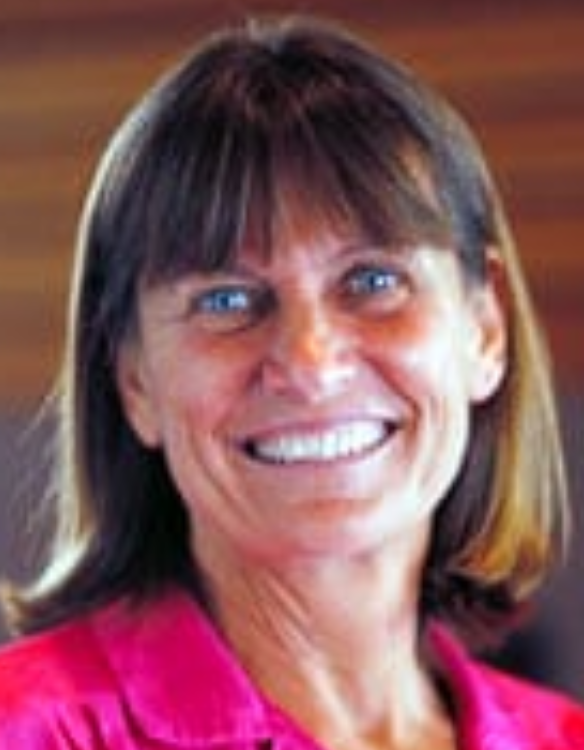 Frances Lawrenz
Frances Lawrenz
Associate Vice President for Research
University of Minnesota
Frances Lawrenz, PhD is the Associate Vice President for Research at the University of Minnesota. She is also Wallace Professor of Teaching and Learning in the Department of Educational Psychology where her expertise is STEM program evaluation. She has served twice as a rotator at NSF and has published numerous papers and reports.
 Brian Martinson
Brian Martinson
Associate Professor
University of Minnesota
Brian C. Martinson, Ph.D., is a Senior Research Investigator at HealthPartners Institute, Research Scientists at the Minneapolis VA Health Care System, and Associate Professor in the Department of Medicine at the University of Minnesota. Formally trained in Sociology and Demography, with Postdoctoral training in Social Epidemiology, since 2001, Brian has led or co-led a series of federally funded research studies on research integrity (R01NR08090; R01NS052885; R21RR025279, I01HX001120). He has contributed substantively and methodologically to improving the understanding of research related behavior (both that which contributes to research integrity and that which can undermine it), as well as to understanding the determinants of such behavior. He has served on a number of expert panels and advisory committees focused on the integrity and quality of science. From 2012 to 2017, Brian served on the U.S. National Academies panel, which in April 2017 published Fostering Integrity in Research.
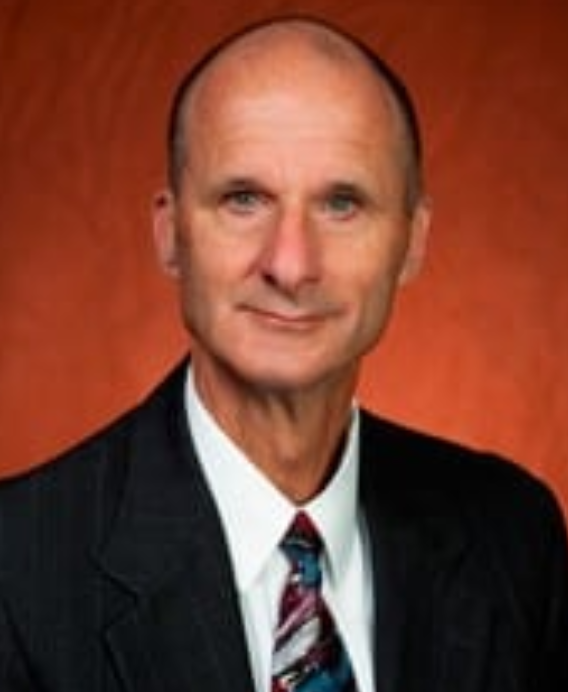 Gary Ostrander
Gary Ostrander
Vice President for Research and President of the Research Foundation
Florida State University
Dr. Gary K. Ostrander is the Vice President for Research and President of the Research Foundation at Florida State University. He is also a Professor of Biomedical Sciences in the College of Medicine. Dr. Ostrander overseas all aspects of Florida State University’s $300 million research enterprise, including research centers, programs and institutes.
Dr. Ostrander received a bachelor’s degree in biology from Seattle University, a master’s degree in biology from Illinois State University, and a doctorate from the University of Washington.
He has previously held faculty and administrative positions at Oklahoma State University, Johns Hopkins University, and the University of Hawaii. He served as Associate Dean of the Graduate School at OSU, Associate Provost for Research and Chair of the Graduate Board at Johns Hopkins University, and Vice Chancellor for Research and Graduate Education at the University of Hawaii’s flagship campus in Honolulu. While in Hawaii he also served as Interim Dean of the Medical School from 2004-2006.
Initially, his research focused on exploiting novel aspects of the biology of aquatic species to address fundamental questions of cancer biology. In recent years, his research program has expanded to include laboratory and field studies aimed at understanding the worldwide deterioration of coral reef ecosystems. He has authored/co-authored over 80 peer-reviewed publications, edited 4 books and co-authored a field guide.
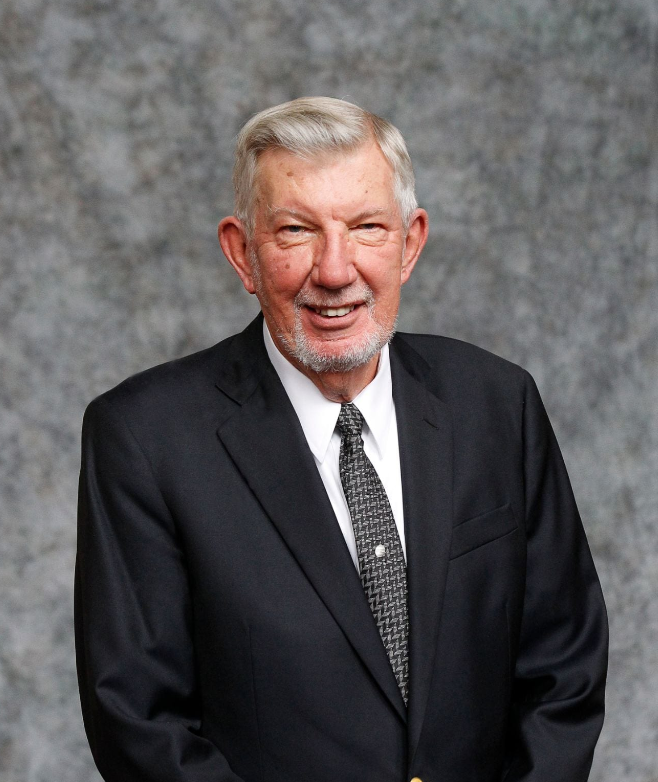 G. Michael Purdy
G. Michael Purdy
Executive Vice President for Research
Columbia University
Dr. G.Michael Purdy is the Vice President for Research at Columbia University. Mike works closely with the Provost and other University leaders on research strategy, and they share the goal of fostering an environment that attracts the brightest and most creative faculty and students to pursue questions that will elucidate and improve our world. His office also establishes and administers the policies that govern the conduct of research and oversees the management of its research programs. It also assists investigators seeking external funding, promotes interdisciplinary research and awards seed money for early stage investigations.
He received his Ph. D. degree from the University of Cambridge in the UK in Marine Geophysics in 1974 and joined Woods Hole Oceanographic Institution (WHOI) in Massachusetts as a Post Doctoral Scholar. Over the next 20 years he built a successful research group specializing in observational ocean bottom seismology, studying the structure and dynamics of the earth’s crust beneath the ocean. In 1991 he became Chairman of the Department of Geology and Geophysics (G&G) at WHOI, one of the world’s leading Marine G&G Departments, and spent four years gaining experience in both national and international marine science planning and administration.
In 1995 he joined the Federal Government as Director of the Division of Ocean Sciences at the National Science Foundation, and spent five years managing an annual budget of more than $200M – the primary source of funding for ocean sciences research in the nation’s universities. While at NSF he established the new multi-disciplinary research program “Life in Extreme Environments” and built several valuable interagency collaborations.
In 2000 he joined Columbia University as the Director of Lamont-Doherty Earth Observatory, the single largest unit of the Columbia Earth Institute. In this position his primary interests were in the building of a first class interdisciplinary research institution that leads the world, not only in the quality of its research, but also in its ability to relate the results of this research to earth issues of importance to humanity. Over 120 PhD-level researchers, 80-90 graduate students and an increasing number of undergraduates work and study at the Observatory.
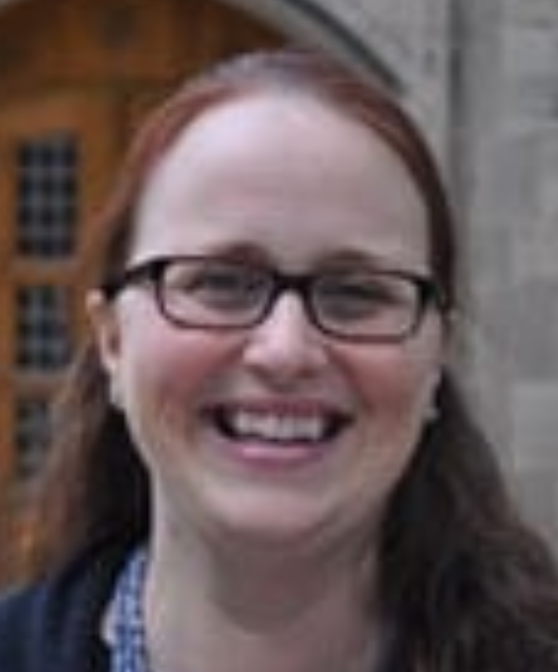 Lauran Qualkenbush
Lauran Qualkenbush
Director, Office for Research Integrity
Northwestern University
Lauran Qualkenbush is the Director of the Office for Research Integrity and the Research Integrity Officer for Northwestern University. She is responsible for promoting the responsible conduct and appropriate administration of University research and is involved in Responsible Conduct of Research education across the University. She oversees the development of research-related training and responds to allegations of research misconduct as well as other types of research non-compliance.
Ms. Qualkenbush is a founding member and President of the Association for Research Integrity Officers (ARIO). She is a teaching RIO for the HHS ORI RIO boot camps and has served on the HHS review panel for research integrity conference grants.
Ms. Qualkenbush holds a Bachelor of Science degree in biology from Xavier University in Cincinnati, Ohio and previously worked in Northwestern’s IRB Office and as a certified clinical research coordinator.

Tom Reynolds
Dean of the Graduate School, Associate Dean for Graduate Programs, and research Integrity Officer
University of North Carolina Charlotte
Tom Reynolds is the Dean of the Graduate School, Associate Provost for Graduate Programs, and Research Integrity Officer at the University of North Carolina Charlotte. Reynolds was appointed as Dean in 2001. At that time the Graduate School enrolled 2,700 students in 50 master’s programs and 6 doctoral degrees. Today over 5,400 graduate students are enrolled in 65 master’s and 24 doctoral programs on campus. During his tenure, Reynolds has provided the leadership in establishing a financial support plan that has substantially increased the available funding for graduate programming, and worked to enhance the culture for graduate education on campus through the establishment of the Center for Graduate Life. Reynolds is a US Navy combat veteran and received a Ph.D. in Plant Science from the Ohio State University in 1982 after leaving the service. He then joined the faculty of the Department of Biology at UNC Charlotte as an assistant professor that same year. Tom was promoted to full professor in 1992 and was awarded the First Citizens Bank Scholars Medal for Research in 1993. He serves on a variety of non-profit and Advisory Boards, continues to serve on two professional Editorial Boards, and is a consultant for the International Atomic Energy Agency and the Food and Agricultural Organization (agencies of the United Nations). He joined the Graduate School in 1997 as the Associate Dean prior to his current appointment
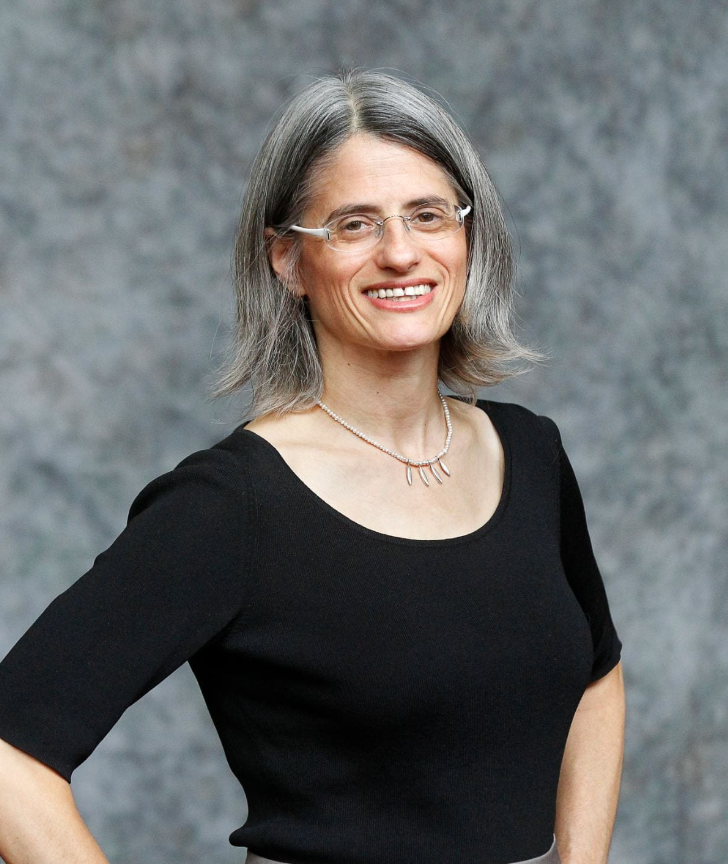 Naomi Schrag
Naomi Schrag
Vice President for Research Compliance, Training, and Policy, and research Integrity Officer
Columbia University
Naomi Schrag is the Vice President for Research Compliance, Training, and Policy in Columbia University’s Office of the Executive Vice President for Research, and is the University’s Research Integrity Officer (RIO). She oversees work on issues such as research misconduct, conflict of interest, export controls and international research compliance, grants management, and develops proactive programs to promote rigor and reproducibility. She also collaborates closely with other offices across the University to develop integrated approaches to compliance and training.
Before joining Columbia in January 2006, Ms. Schrag practiced law for nine years, focusing on regulatory compliance and litigation involving biomedical research, with clients including pharmaceutical companies and not-for-profit organizations. Ms. Schrag also clerked in the Court of Appeals for the Second Circuit. Ms. Schrag graduated from New York University School of Law in 1995. Before entering law school, she worked on an oral history of the Holocaust for the Museum of Jewish Heritage.
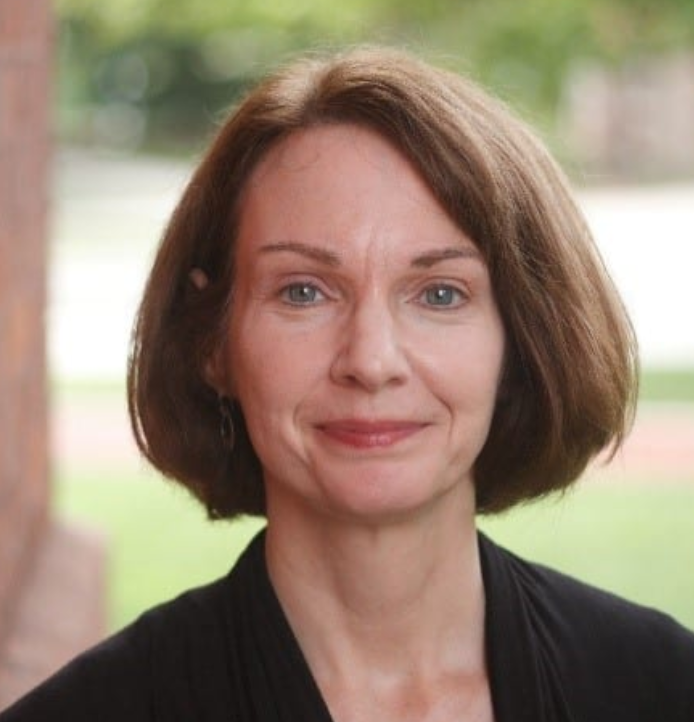 Judith Stoddart
Judith StoddartAssociate Provost for University Collections and Arts Initiatives and Senior Associate Dean in the Graduate School
Michigan State University
Dr. Judith Stoddart is Associate Provost for University Collections and Arts Initiatives and Senior Associate Dean in the Graduate School at Michigan State University. She served as interim Associate Provost for Graduate Education and Dean of the Graduate School at Michigan State from 2015-2017; she has been an Associate Dean in the Graduate School since 2011. As co-PI and project director at MSU for the Council of Graduate Schools (CGS) Ph.D. Completion Project and for the ETS/CGS Award for Innovation in Promoting Success in Graduate Education, Dr. Stoddart has worked with graduate programs across MSU and with national partners on initiatives to improve doctoral student recruitment, mentoring, and career and professional development. She directs MSU’s engagement in two national survey initiatives, the CGS PhD Pathways Project, and gradSERU, and is a member of the multi-institution gradSERU Design Committee. She also serves on the steering committee for the Big10/ACM Mellon Undergraduate and Faculty Fellows Program for a Diverse Professoriate. Dr. Stoddart was a member of the MSU Provost’s Task Force on Graduate Student Mentoring and Research, which wrote the Guidelines for Graduate Student Advising and Mentoring Relationships and the Guidelines for Integrity in Research and Creative Activities. She is a National Research Mentoring Network certified facilitator for research mentor training for faculty and students. She served as a certified mediator in the University Mediation Center, and a part of the Graduate School Conflict Resolution training team which has provided workshops to faculty and graduate students at universities across the country. Dr. Stoddart was a Rhodes Scholar at Oxford, where she received an M.Phil and D.Phil in English. She has published on 19th-century theories of nationalism, aesthetic theory, and visual culture. Dr. Stoddart was the associate chair and graduate program director in the MSU English Department for 4 years; her graduate and undergraduate teaching have been recognized by departmental and university awards.
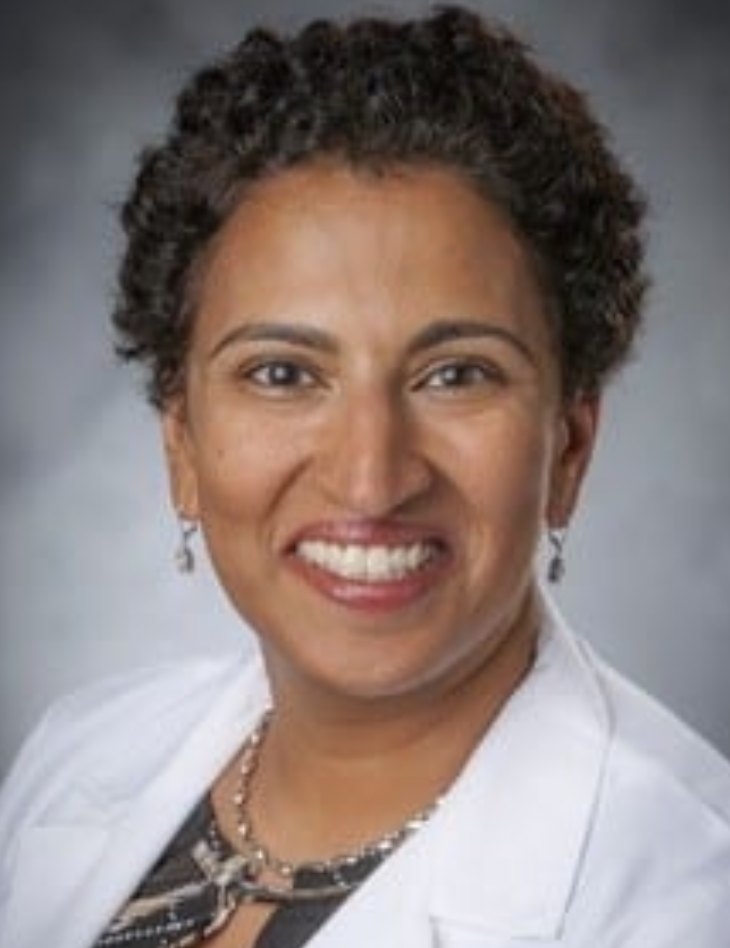
Geeta K. Swamy
Vice Dean and Associate Vice Provost for scientific integrity Duke University
Geeta K. Swamy serves as vice dean and associate vice provost for scientific integrity for Duke University and the School of Medicine and is an associate professor of Obstetrics & Gynecology, Division of Maternal-Fetal Medicine at Duke University. Dr. Swamy works with leaders across campus to provide a consistent University vision for scientific integrity standards and expectations and will drive efforts to ensure the advancement of scientific integrity across Duke University and the School of Medicine. A highly accomplished clinician-scientist, Dr. Swamy specializes in perinatal infection and maternal immunization. She is the principal investigator on numerous grants from the NIH, CDC, and other funding sources and has published more than 100 articles. She received her medical degree from the University of North Carolina at Chapel Hill and completed residency training in obstetrics and gynecology at the University of Pittsburgh and a fellowship in Maternal-Fetal Medicine at Duke University.